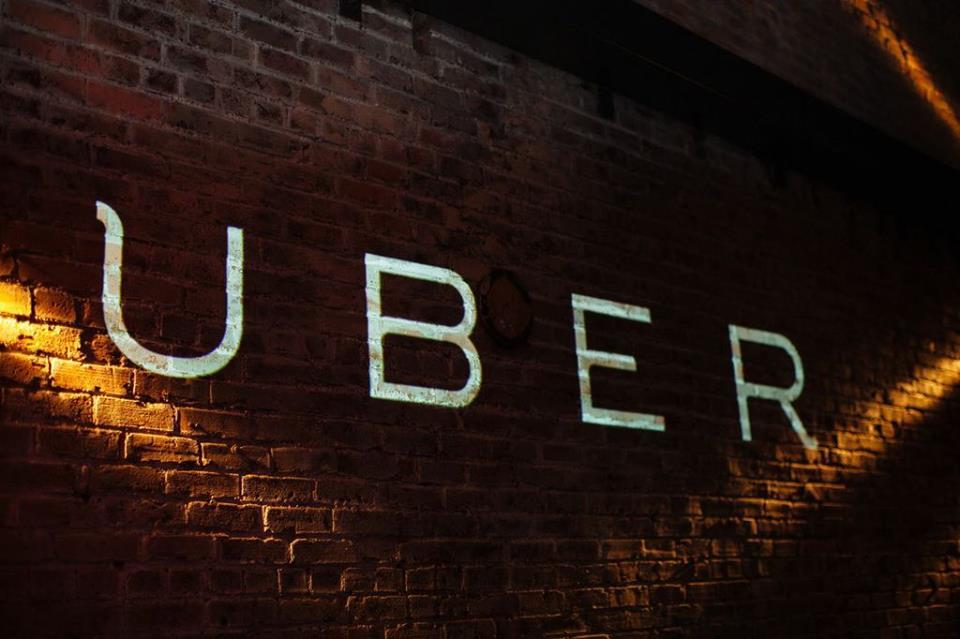Labor & Economy
Uber and Airbnb: A 'Sharing' Economy for Whom?

Like a charismatic politician whose flaws have yet to be exposed, the so-called sharing economy enjoyed a meteoric rise to fame and success. Uber, Lyft, Airbnb — these companies emerged seemingly from nowhere to become economic and cultural powerhouses, and to challenge the prevailing structure of their respective industries.
But 2015 has not been as kind to Uber and its brethren, as the fascination with a new business model has given way to serious concerns over everything from public safety to worker exploitation to unfair market monopolization. In some ways this is not surprising — the honeymoon for startups can be notoriously brief.
But something larger is at play here. In the age of rampant income inequality, the overhyped promises of the sharing economy are running headlong into a growing desire by Americans for a caring economy.
There’s a reason why even Republican presidential candidates, who usually shy away from anything resembling class warfare, are scrambling to stake out positions on economic inequality. Americans are increasingly anxious about their prospects in an economy where wealth continues to be concentrated at the top while the middle and bottom stagnate or fall further behind.
A 2014 poll found that a staggering 76 percent of Americans lack confidence that their children’s generation will have a better life than they do. This widespread conviction helps explain the surprising popularity of Bernie Sanders, whose longshot bid for the Democratic presidential nomination has been fueled by his relentless critique of an economic system that is failing too many people.
Uber and its contemporaries are not the worst offenders. But the gap between their almost utopian marketing — “At its core Airbnb is about belonging…belonging to the world,” the company’s CEO Brian Chesky has declared — and cold hard reality has become increasingly untenable. Their insistence on classifying workers as independent contractors, a status that denies them basic labor protections as well as benefits, is all too familiar in a country where more than 40 percent of the labor force will have what Robert Reich terms “uncertain work” within five years.
The proliferation of companies that eschew traditional employer obligations is a driving force in the sea change buffeting the American labor force. As Reich told the New York Times, “For anybody who has to pay the bills and has a family, having no labor protections and no job security is at best a mixed blessing. At worst, it is a nightmare. Obviously some workers prefer to be independent contractors — but mostly they take these jobs because they cannot find better ones.”
As the sharing economy continues to grow, companies like Uber and Lyft may be hard-pressed to justify their refusal to treat drivers as employees. In June, the California Labor Commissioner ruled that an Uber driver had been misclassified as an independent contractor. The ruling, which is being appealed, only applies to the plaintiff, but could have much broader implications for Uber and other firms that rely on a business model that keeps labor costs down. A group of Uber drivers in California has filed a separate suit against the company and was recently awarded class-action status, which could lead to a large number of the state’s 160,000 current and former Uber drivers being reclassified as employees.
This is not the kind of sharing that Uber and its ilk are fond of. For them, the sharing economy is fundamentally about sharing costs and risks with workers and consumers — a brilliant way to maximize profits. (Both Uber and Airbnb have come under fire for trying to duck responsibility and pass on primary liability to drivers, in the case of Uber, and hosts, with Airbnb.)
Companies can get away with this kind of behavior more easily when there is widely shared prosperity. But in a time of severe income disparity and pervasive economic insecurity, hiding behind the sheen of hi-tech innovation in order to avoid the standard obligations of an employer may not be a winning strategy.
Americans are looking to corporate citizens to embrace their responsibilities to workers and the public. The enormous popularity of minimum wage increases and anti-wage theft measures are a powerful barometer of this desire, and one that Uber and other sharing economy players would do well to heed. If sharing is caring, then the sharing economy has a long, long way to go.
Julie Gutman Dickinson is a partner with the union-side law firm Bush, Gottlieb. She has served as Vice President of the Los Angeles Board of Public Works Commissioners and Senior Labor Advisor to Los Angeles Mayor Antonio Villaraigosa. This article was cross-posted with the Huffington Post with permission.

-

 Column - State of InequalityJanuary 22, 2026
Column - State of InequalityJanuary 22, 2026On Eve of Strike, Kaiser Nurses Sound Alarm on Patient Care
-

 The SlickJanuary 20, 2026
The SlickJanuary 20, 2026The Rio Grande Was Once an Inviting River. It’s Now a Militarized Border.
-

 Latest NewsJanuary 21, 2026
Latest NewsJanuary 21, 2026Honduran Grandfather Who Died in ICE Custody Told Family He’d Felt Ill For Weeks
-

 The SlickJanuary 19, 2026
The SlickJanuary 19, 2026Seven Years on, New Mexico Still Hasn’t Codified Governor’s Climate Goals
-

 Latest NewsJanuary 22, 2026
Latest NewsJanuary 22, 2026‘A Fraudulent Scheme’: New Mexico Sues Texas Oil Companies for Walking Away From Their Leaking Wells
-

 The SlickJanuary 23, 2026
The SlickJanuary 23, 2026Yes, the Energy Transition Is Coming. But ‘Probably Not’ in Our Lifetime.
-

 The SlickJanuary 27, 2026
The SlickJanuary 27, 2026The One Big Beautiful Prediction: The Energy Transition Is Still Alive
-

 Column - State of InequalityJanuary 29, 2026
Column - State of InequalityJanuary 29, 2026Are California’s Billionaires Crying Wolf?

